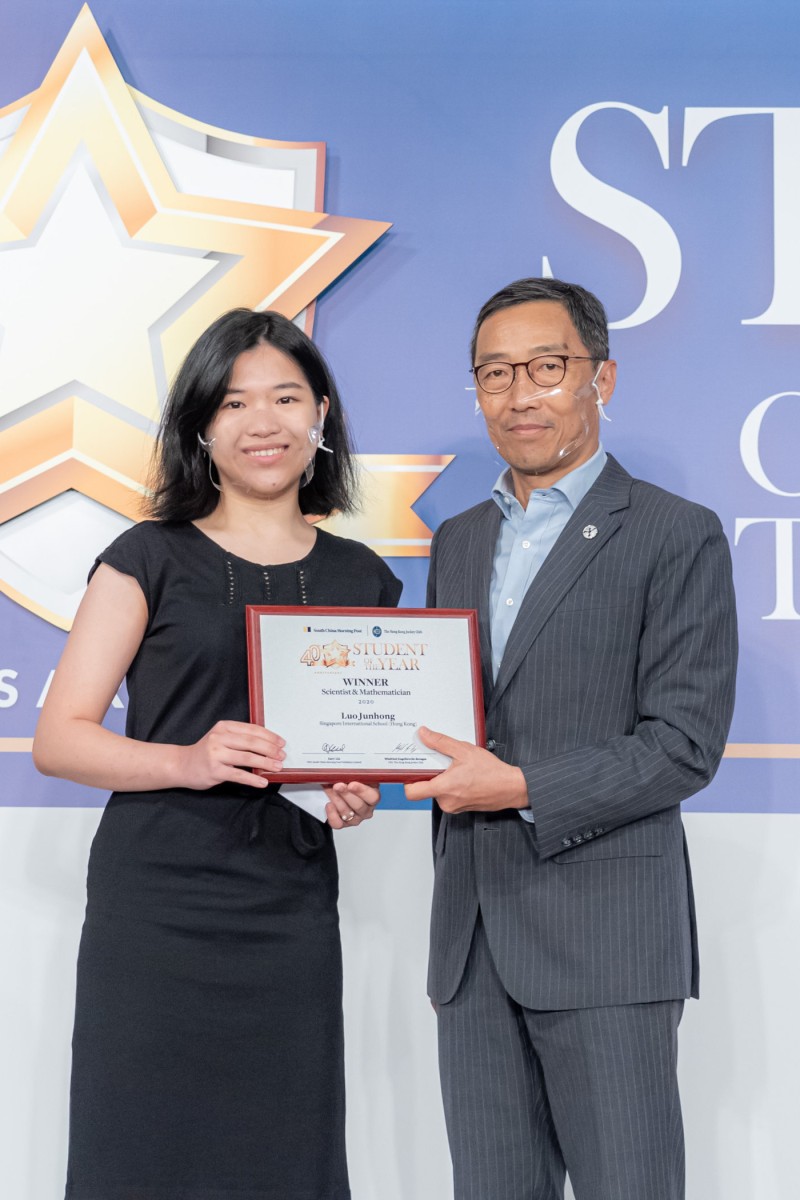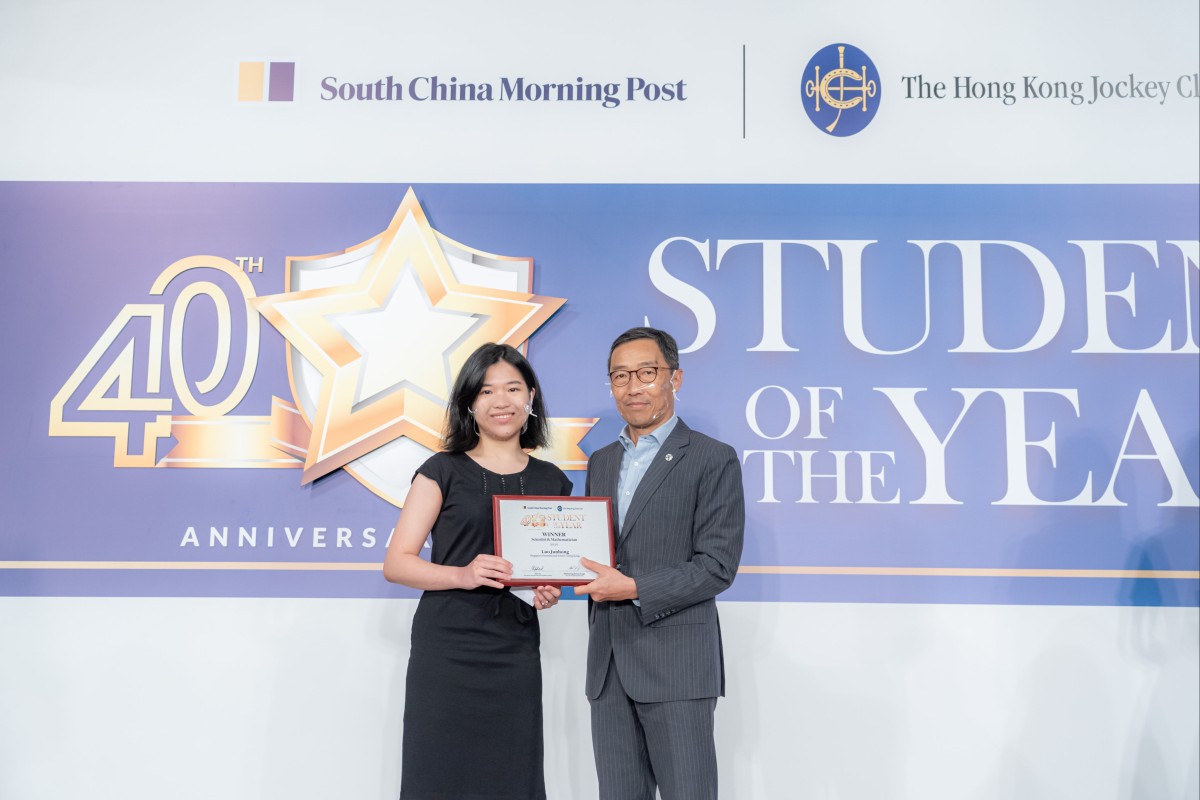
Culture shock and language barrier did not stop curiosity of the 2021 Student of the Year Scientist and Mathematician winner
- In grade eight, Luo Junhong moved from Guangzhou to Hong Kong and initially had trouble adjusting to Singapore International School
- The teen has conducted her own research project on drug delivery systems and is studying Natural Sciences at Cambridge University

 Luo Junhong (left) is the 2021 winner of the Student of the Year Scientist and Mathematician award. Photo: SCMP
Luo Junhong (left) is the 2021 winner of the Student of the Year Scientist and Mathematician award. Photo: SCMPFor this year’s Student of the Year Scientist and Mathematician winner, difficult science concepts and maths problems were not her most daunting obstacles. Rather, it was a language barrier.
Having only studied at a traditional school in Guangzhou for all of her childhood, Luo Junhong found it difficult to adjust to the Hong Kong international school system when she moved to the city and transferred to Singapore International School in grade eight.
“That was a very different learning experience when you compare that to international schools in Hong Kong. I was shocked when I came to school on the first day – everyone was talking in English really fast,” she said, explaining that she experienced culture shock and had difficulty adjusting to English slang that her classmates were using.
“I couldn’t really understand the concepts we were learning [in class] ... even the words in the textbooks.”
For this year’s Linguist winner, English is a way to build confidence
She faced many difficulties, and even failed a test that many of her classmates easily passed. Saddened by this setback, she cried to her teacher afterwards.
“It kind of destroyed my confidence a little bit in the beginning, feeling like maybe I could never do as well as other students because they had these extra years of being in this environment,” she continued.
“I was very surprised when I came here that students got science lessons since grade one.”
Nevertheless, through perseverance and hard work, she overcame this obstacle.
Now, Junhong’s love for STEM (science, technology, engineering and mathematics) goes beyond the classroom, fuelling her desire to discover more about the natural world.
Despite an interest in other STEM fields, her most fervent dedication remains with chemistry. Her journey towards developing this passion started with something simple – asking questions.
At first, Junhong recalled being confused about the subject because it had many complex concepts. However, this eventually pushed her to explore the world of chemistry on her own.
Pakistani engineer overcame racism, sexism, language barrier in Hong Kong
“The more I learned about [chemistry] outside the classroom, the more I realised this was very interesting, and ... this is what I want to study,” she said with a smile.
“For me, chemistry was a ... no-pain process [because] it all starts from curiosity. You have to ask a lot of questions on your own. There are no stupid questions.”
That being said, she believes that passion is more important than grades when it comes to being a mathematician or scientist.
“Getting a good grade in an exam doesn’t necessarily mean that you are really interested in the subject,” she said.
Island School students lead the way with on-campus zero-waste initiative
While she understands why schools usually refer to grades when it comes to presenting academic awards, Luo believes this concept is flawed. “It doesn’t really encourage people to explore further if you define it by exam grades,” she argued.
After attending Stanford Summer Sessions in 2019, Junhong wanted to “do something long term, something really cool”. So she decided to take on her own research project by studying drug delivery systems for about 10 months.
This project allowed her to become a champion in the Hong Kong Student Science Competition 2020. She also received a merit prize for the Hong Kong Youth Science and Technology Innovation Competition and was nominated to represent the city at the International Science and Invention Fair 2020.
Teens hope to make life easier for people with walking aids
In the future, the teen hopes to continue conducting research, using her skills to better society. She wants to do something that “actually benefits people’s lives by applying complex or innovative material science ... or chemistry ideas – instead of just staying in the lab and researching things that ... may not benefit [everyday people]”.
To do so, she is continuing her studies in Britain at Cambridge University, where she is working towards an undergraduate degree in Natural Sciences.
Now in its 40th year, the Student of the Year competition recognises the achievements of secondary school students, with 11 awards across nine categories.
The results were announced earlier this year. It is organised by the South China Morning Post and sponsored by the Hong Kong Jockey Club.
